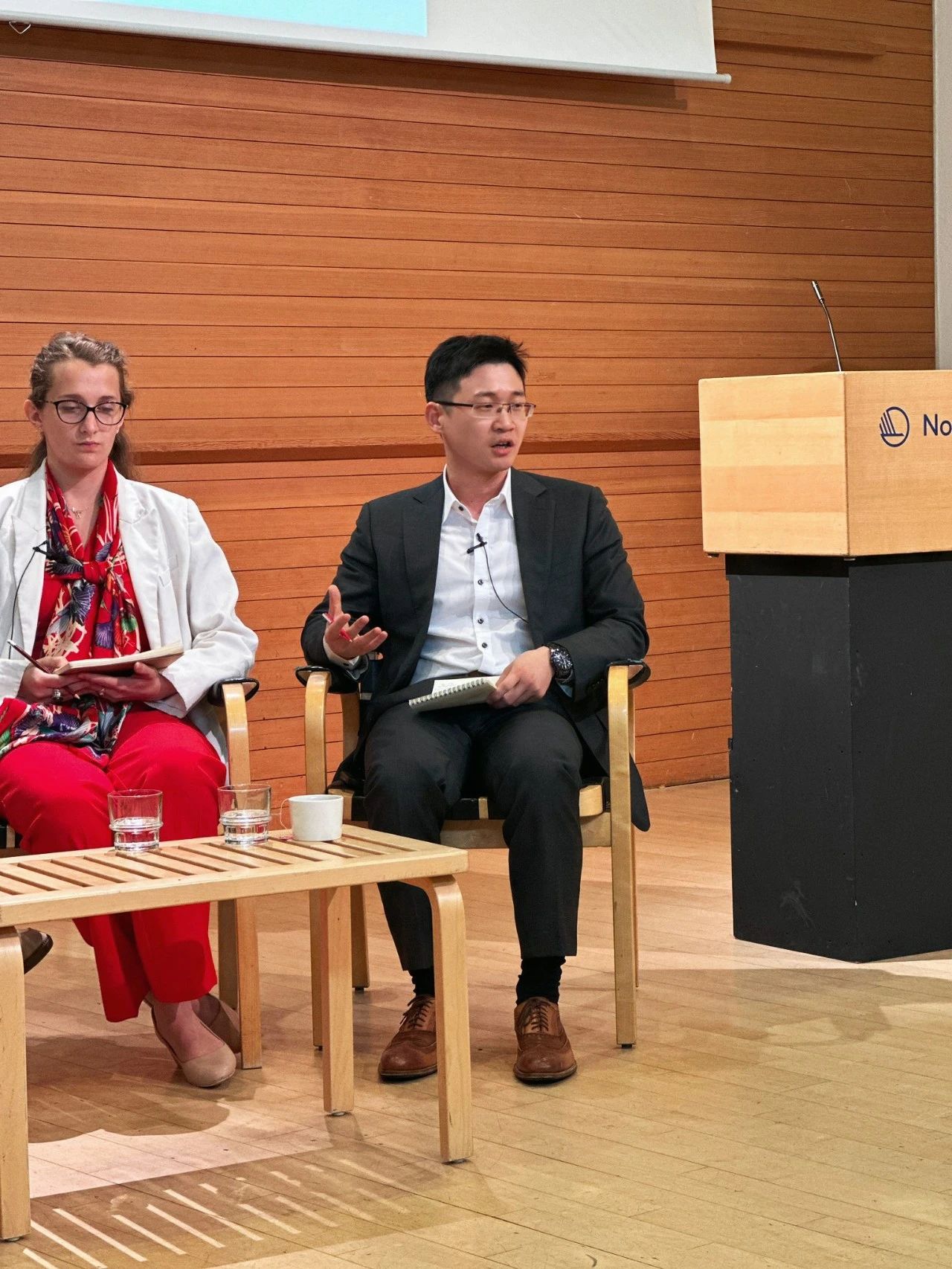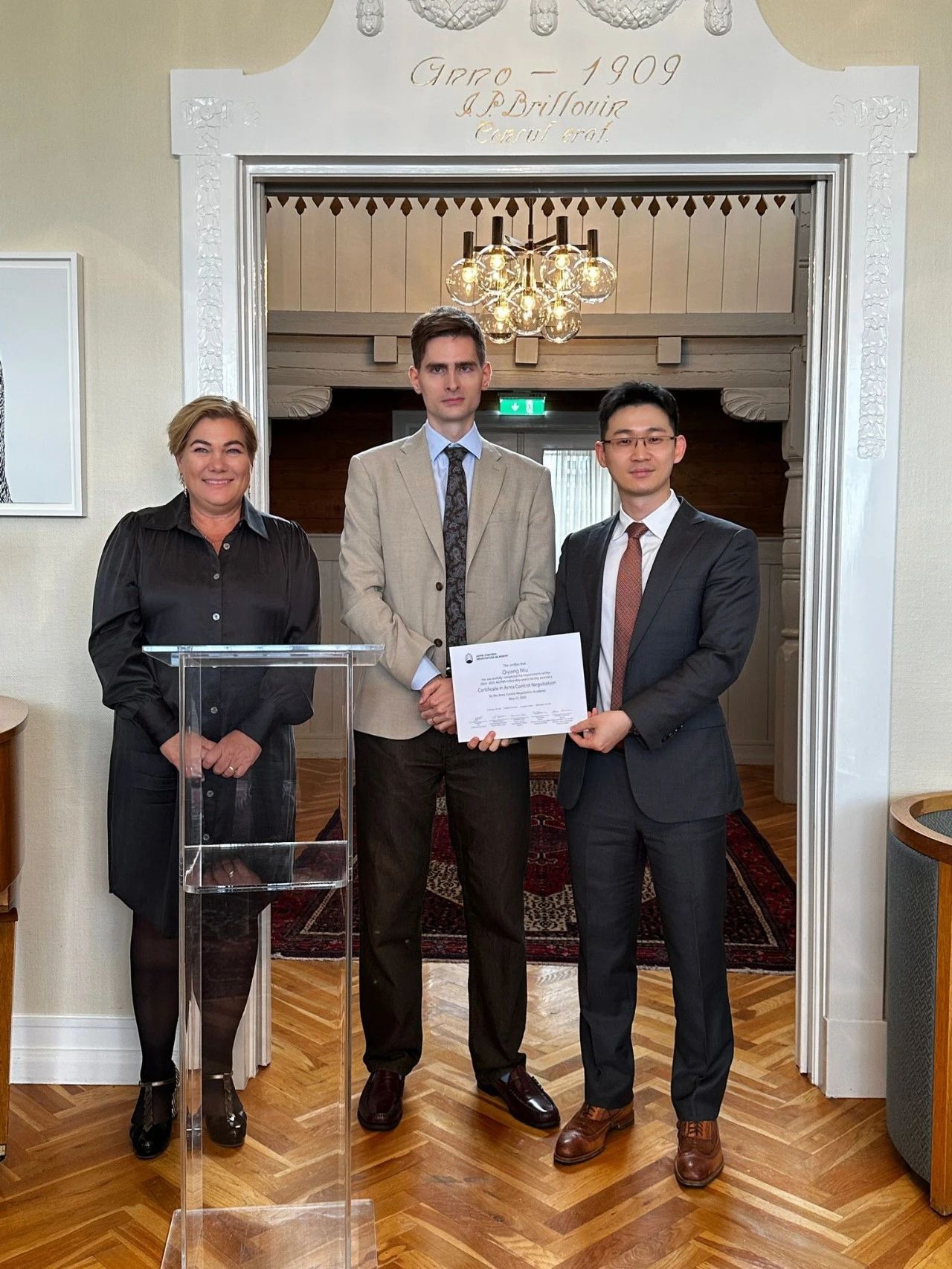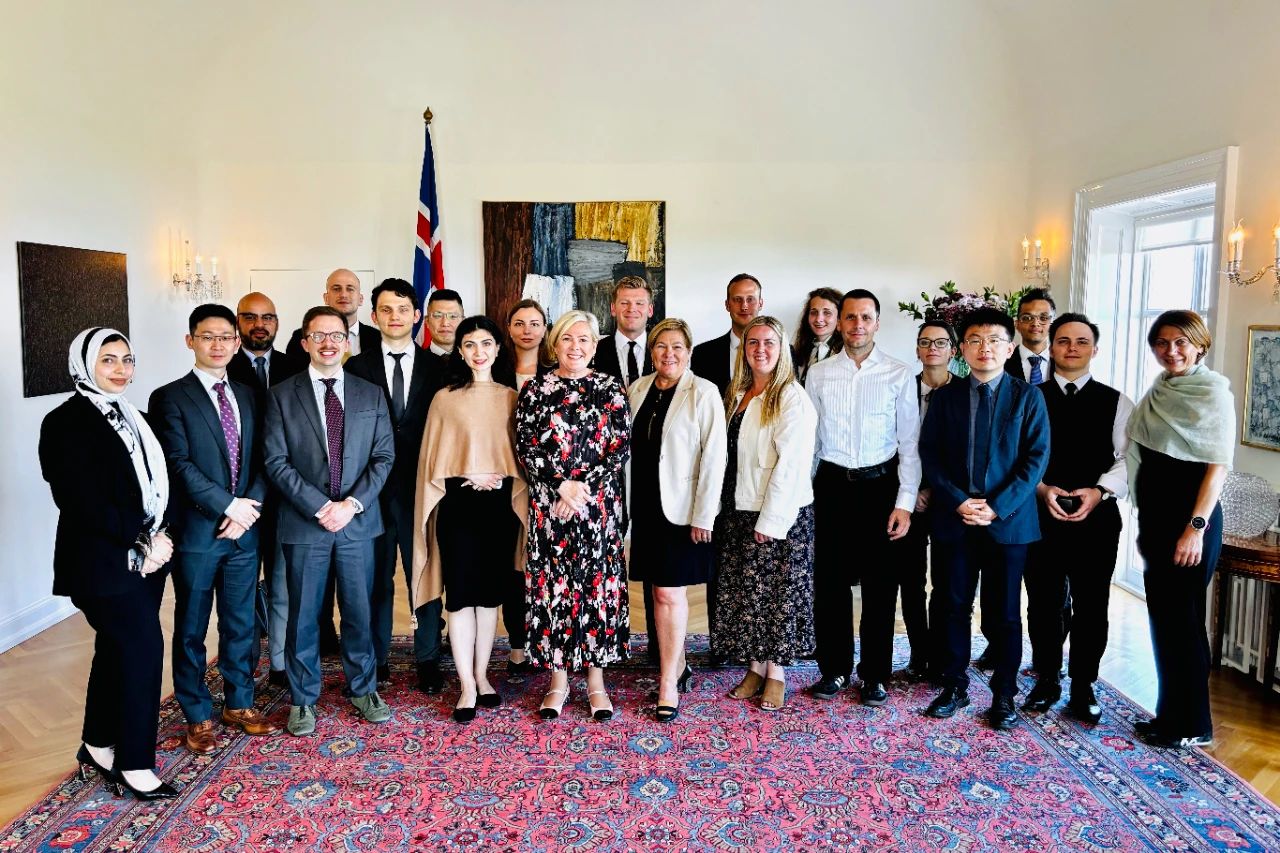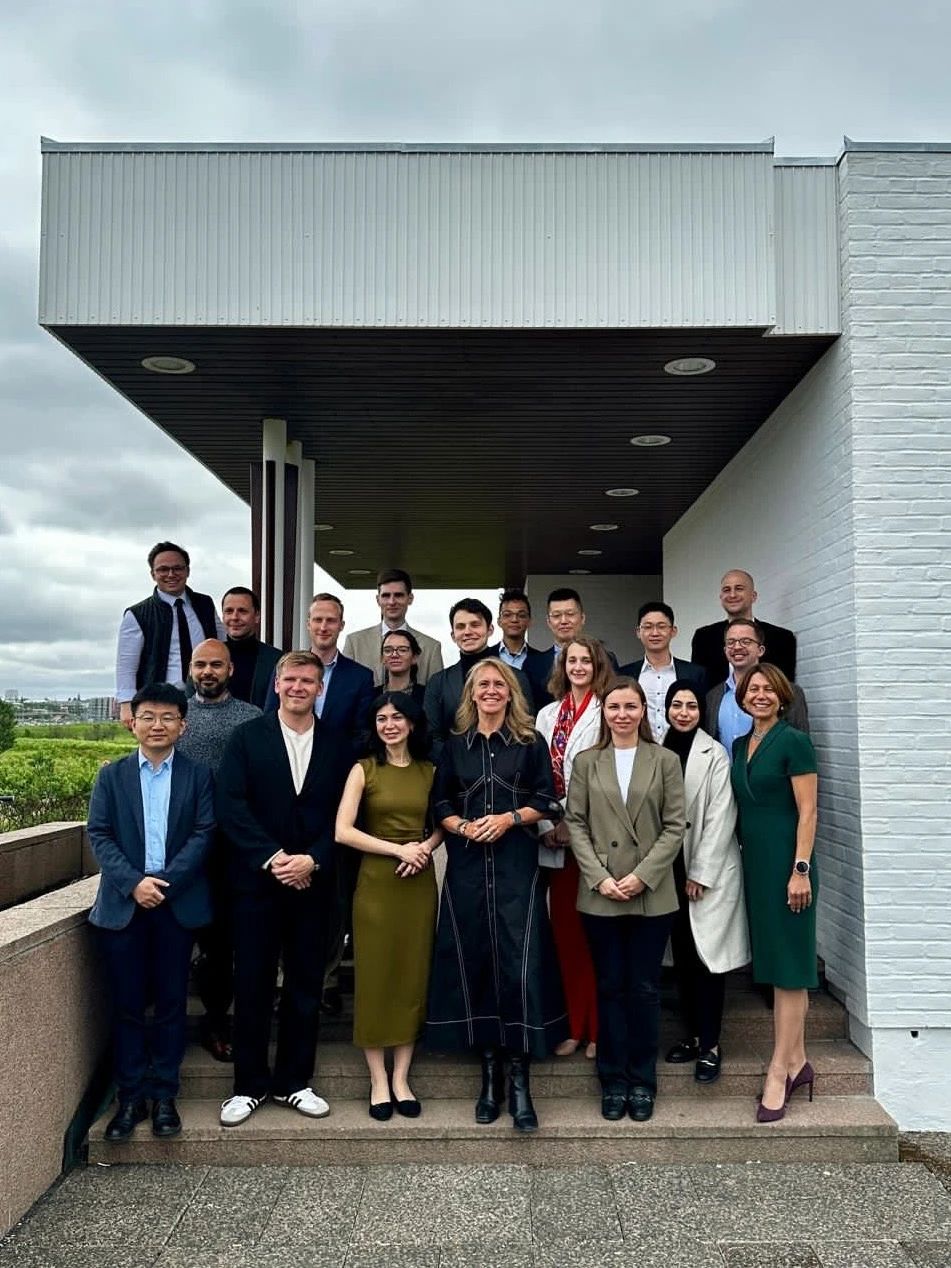In late May 2025, Niu Qiyang, Ph.D. Research Fellow at the Center for International Security and Strategy (CISS), completed a year-long fellowship with the Arms Control Negotiation Academy (ACONA) and was awarded the program’s Best Paper Prize. Representing the 2024–25 ACONA cohort, Niu spoke at the University of Iceland’s conference titled “New Domains Dialogue: Technology and Conflict in a Changing Geopolitical Order” in Reykjavik.
When asked about China’s engagement in arms control, Niu emphasized that contrary to some media portrayals, China is not absent from the global arms control dialogue. He noted that China maintains regular Track I arms control and nonproliferation consultations with several European governments, including the UK, Germany, France, the Netherlands, and the EU. While arms control dialogue with the United States has been affected by broader bilateral tensions, multiple channels of communication remain open. Niu argued that the priority should not be shaping narratives, but rather improving the international political environment to enable deeper and more effective arms control and nonproliferation efforts.


During their time in Iceland, ACONA fellows also met with the President and Foreign Minister of Iceland to exchange views on global security issues.

Established in 2019, the Arms Control Negotiation Academy is a 12-month advanced professional development program that brings together emerging security policy experts from China, the U.S., Russia, Europe, and the Global South. Through three intensive training camps and collaborative research projects, fellows study historical case studies, technical topics, and negotiation skills, culminating in simulated negotiation exercises. Jointly organized by Harvard University, the University of Iceland, and the Peace Research Institute Frankfurt, ACONA aims to address the erosion of the post-Cold War security architecture and the rise of new global security challenges.

